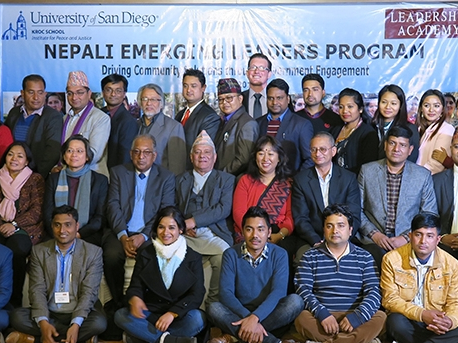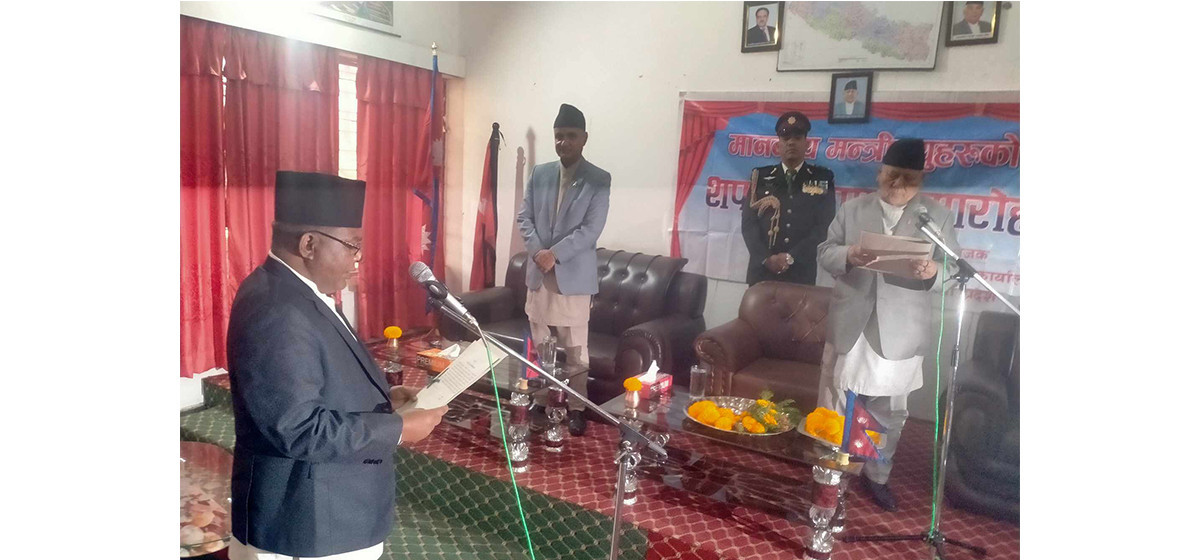
OR
AUD42m program in Himalayan river basins launched
Published On: February 22, 2017 12:10 AM NPT By: Republica | @RepublicaNepal
KATHMANDU, Feb 22: Australian Ambassador to Nepal, Glenn White, on Tuesday announced launch of the second phase of activities in the Himalayan river basins under the Sustainable Development Investment Portfolio (SDIP2).
According to a press statement issued by the Embassy of Australia in Kathmandu, the Australian government has committed $42 million to the SDIP2 (2016-2020) bringing Australia's total SDIP commitment across the region to over $90 million since 2012. The program has been launched against the backdrop of water scarcity and mounting climate change impacts, a heavy dependence on the Himalayan water resources for agriculture and livelihoods, and the growing and competing demands for this scarce resource from industry, population growth and urbanization.
The SDIP2 is an Australian Government regional development program to improve integrated management of water, energy and food in parts of Nepal, India, Pakistan, Bhutan and Bangladesh, addressing climate risk and the interests of women and girls. The first four-year phase of the SDIP concluded in 2016.
“In response to the Government of Nepal and other bilateral partners in South Asia, Australia has and will continue to support the region where it is uniquely placed to contribute,” the statement quoted Australian ambassador as saying during the launching ceremony.
SDIP initiatives focus on the Indus, Ganges and Brahmaputra river basins. Over its second phase, SDIP2 aims to strengthen practices for regional cooperation; generate and share new knowledge; and improve the regional enabling environment (including private sector engagement) for more integrated and shared management of water, energy and food resources. “The SDIP (2012-2024) reflects a long term strategy recognizing many of the critical interventions needed for improving the integrated management of water, food and energy at the river basin level require sustained engagement to build capacity and support regional cooperation over time,” added the statement.
You May Like This

Water level in Kaligandaki River increases, settlements near river alerted
PARBAT, Aug 5: Continuous rains for some days have increased water level in the Kaligandaki River, said the district administration office... Read More...

Nepal Emerging Leaders Program 2018 launched
KATHMANDU, Jan 22: Kathmandu-based Leadership Academy and US-based Kroc School & Kroc Institute for Peace and Justice (IPJ), University of... Read More...

Tourism promo program 'Rarabas to Rara Lake' launched
KATHMANDU, Oct 3: A new tourism promotional campaign aims to promote tourism of six districts ranging from Banke to Mugu... Read More...







Just In
- Karnali: Maoist Center’s Pariyar appointed as minister without portfolio
- Illam by-election: Nepal-India border to be 'sealed' from midnight today
- Gold price rises by Rs 500 per tola
- Emir of Qatar returns home after wrapping up state visit to Nepal
- Senate passes bill forcing TikTok’s parent company to sell or face ban, sends to Biden for signature
- PM Dahal hosts luncheon in honor of Qatari Emir
- Tata Sumo accident in Kavre leaves 10 injured, three in critical condition
- West Indies ‘A’ cricket team arrives in Nepal



_20240423174443.jpg)








Leave A Comment